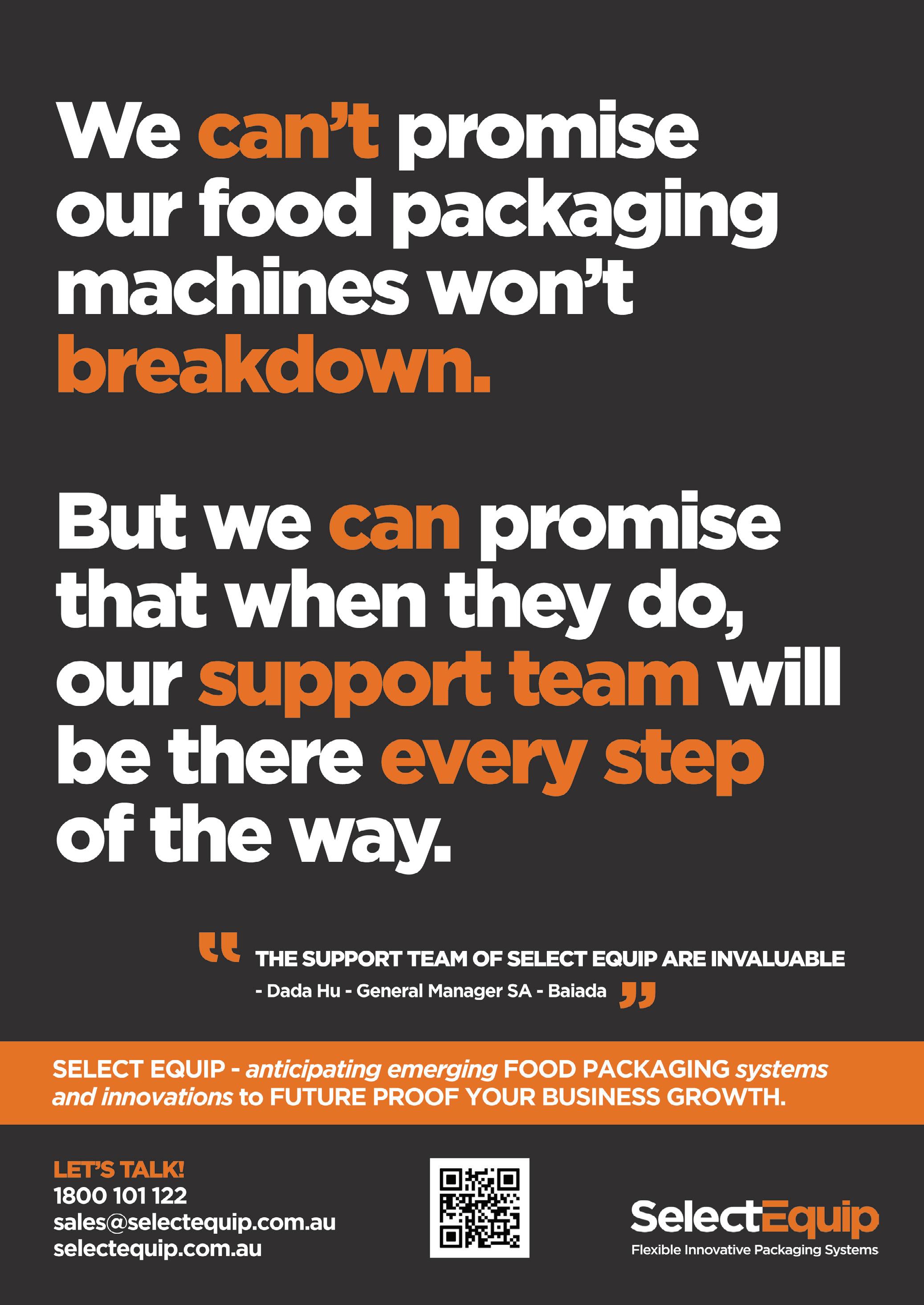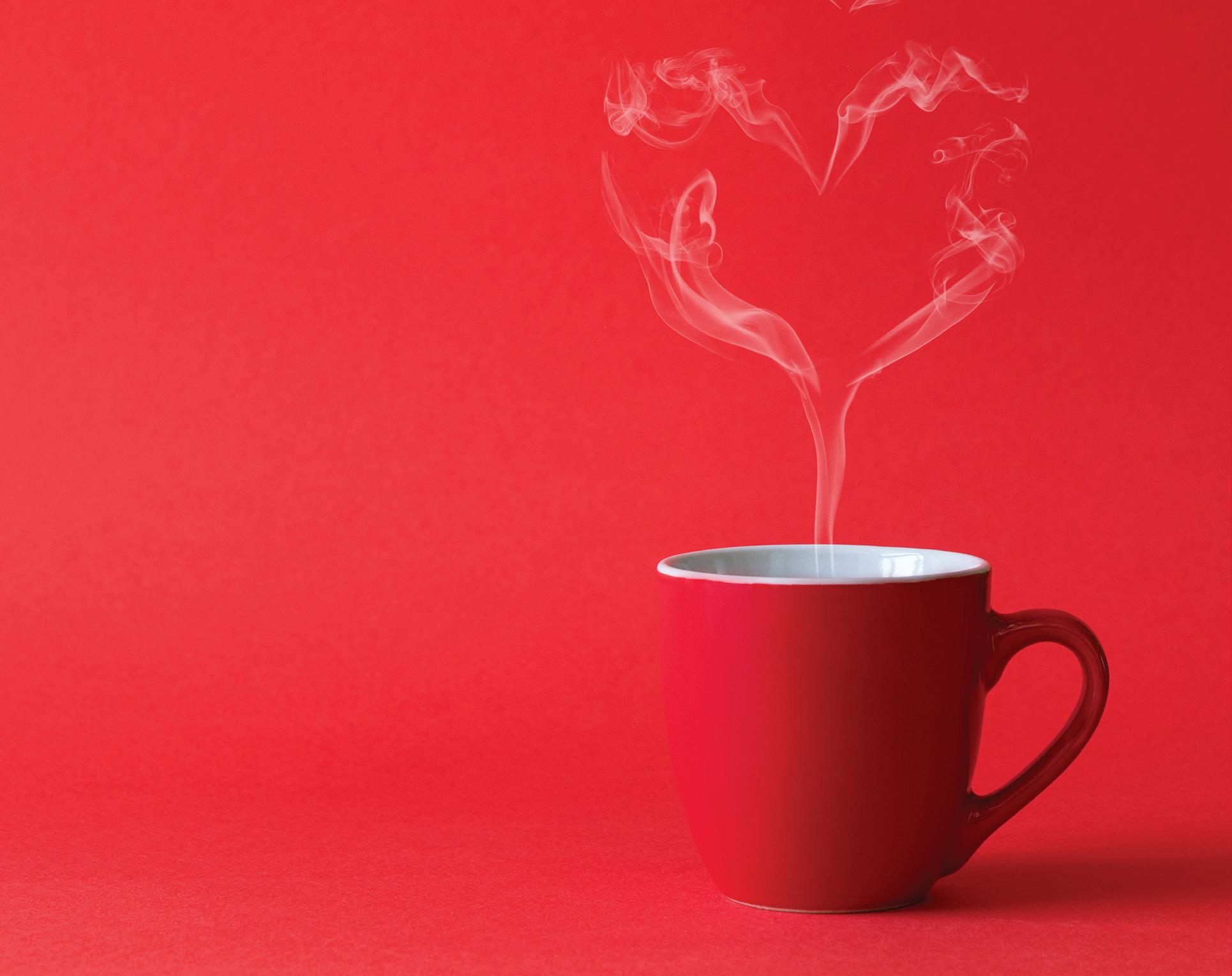
16 minute read
Food brand rankings
Nestlé is again the world’s most valuable food brand, according to the 2022 edition of the Brand Finance Food 100 ranking.
© iStockphoto.com/TShum
This annual report, compiled by brand valuation consultancy firm Brand Finance, ranks 5000 major brands from around the world according to their value.
Nestlé is the largest food brand, valued at $28 billion, which is roughly twice the value of the second-place holder, the Chinese dairy brand Yili, valued at $14.2 billion. Lay’s comes in third place with a value of $11.5 billion. Each of these three brands has increased their value by around $1 billion each in the last year.
Nestlé credits its decentralised structure as the reason behind its ongoing profits and ability to successfully brave the COVID-19 pandemic and supply chain pressures of the past couple of years. The company said its ability to test and launch new products in an agile fashion has led to its continued growth.
Yili products in the cheese, powdered milk and bottled water categories have all had strong growth, with the company saying that consumers in China see these foods as offering health and nutritional benefits, hence their market strength.
Savio D’Souza, Brand Finance Valuation Director, said: “People are returning to the brands they love — they are hungry for Nestlé, Yili and Lay’s! Food brand values are back above pre-pandemic levels.”
Brand Finance also looks at the relative strength of a brand in terms of marketing, reputation, awareness of consumers and various other factors that are fed into an algorithm to produce a score — the Brand Strength Index (BSI) — that reflects a brand’s power. Hershey’s was found to be the world’s strongest food brand, with a BSI of 89.8 and an AAA+ brand rating.
Brand Finance compiles reports regarding the value of many other food and beverage categories. For instance, Yili is unsurprisingly the most valuable dairy company, followed by Danone (worth $10.5 billion).
The most valuable non-alcoholic drinks company, Coca-Cola, manages to dwarf its competitors, with its total value clocking in at an impressive $47.7 billion. Pepsi takes the second place in this category with $27.9 billion.
“As pandemic restrictions recede in the rear-view mirror, many non-alcoholic brand values are surging,” said D’Souza. “People are once again able to easily get together for a Coke, a Pepsi, a coffee or cup of tea. This is good for consumers, and good for brand values in this sector of the economy.”
Coca-Cola is the company with the highest brand strength, with a BSI of 93.3 out of 100 and an AAA+ brand rating.
On the alcoholic front, the most valuable beer brand was Corona ($9.4 billion), the most valuable wine was Moët & Chandon ($1.9 billion) and the most valuable spirit was Moutai ($57.8 billion).
The rankings are available from the Brandirectory site: brandirectory.com/rankings
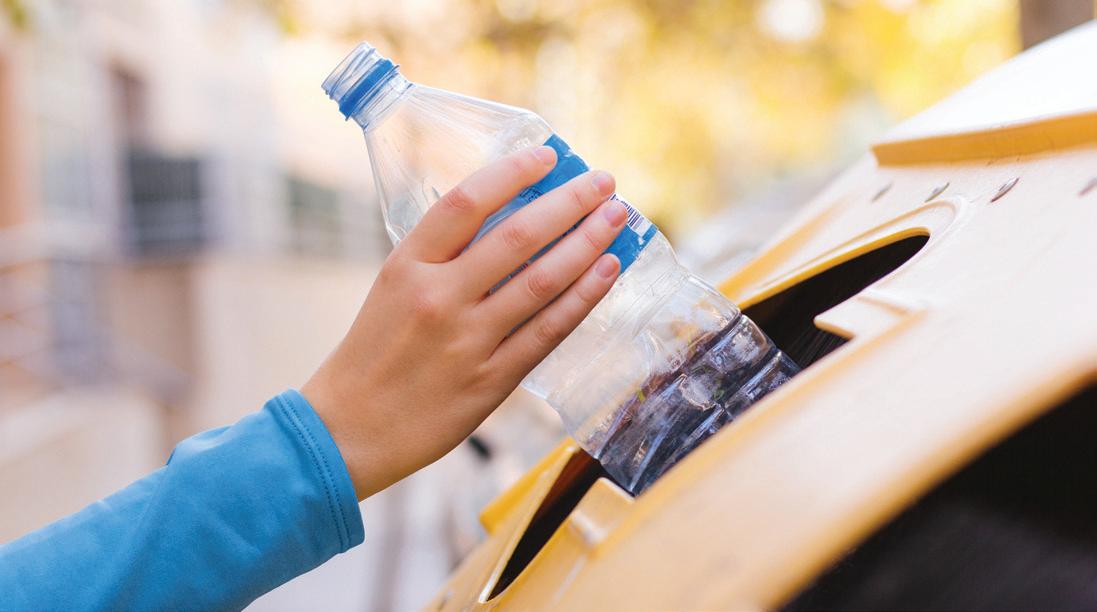
image©iStockphoto.com
Fo d
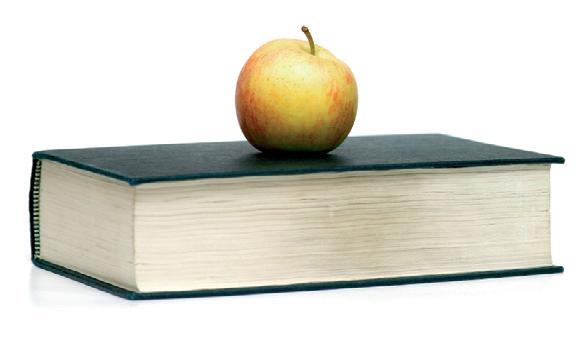
FOR thought
©stock.adobe.com/au/AdriaVidal
Partnership formed to increase ARL usage in NZ
New Zealand consumers can expect to see a lot more of the Australasian Recycling Label (ARL) thanks to a partnership that has been signed between the Food & Grocery Council (FGC) and the Australian Packaging Covenant Organisation (APCO).
The ARL was developed by APCO, Planet Ark and PREP, and while many companies are adopting it in Australia, and it enjoys strong support from Australian consumers, it is less commonly seen in Kiwi stores.
As part of the new partnership between them, APCO and FGC will design a roadmap to increase awareness of the ARL in New Zealand so that both consumers and businesses are highly aware of it. Use of the PREP system will also be encouraged.
Food & Grocery Chief Executive Katherine Rich said: “69% of New Zealanders say they check the label on packaging before recycling, so the instructions need to be clear and, most importantly, reflect the collection and recycling system here in New Zealand.
“More than 95% of scannable barcodes on packaging are common across both New Zealand and Australia, so our members need one labelling system. We are excited to continue this great work by championing the adoption of the ARL, not just by the food and grocery sector but for all packaging.”
Dairy processors and producers unite in WA
The WA Government has welcomed a strategic five-year plan developed to grow and build confidence in the Western Australian dairy industry.
The WA Dairy Five-Year Industry Development Plan, which emerged as a key priority from a ministerial round table with industry last year, will play a major role in supporting future growth and sustainability of the state’s dairy industry.
WA Agriculture and Food Minister Alannah MacTiernan officially launched the plan at the WAFarmers Dairy Conference in Busselton on 21 July 2022.
“It is greatly encouraging to see producers and processors come together to develop a plan for Western Australia’s dairy industry,” MacTiernan said.
The plan aims to increase profitability throughout the supply chain, by better understanding emerging consumer trends and responding to local and international market opportunities.
It will promote the industry with one unified voice, to attract new investment and talent into dairy farming, as well as optimising opportunities to de-carbonise the supply chain.
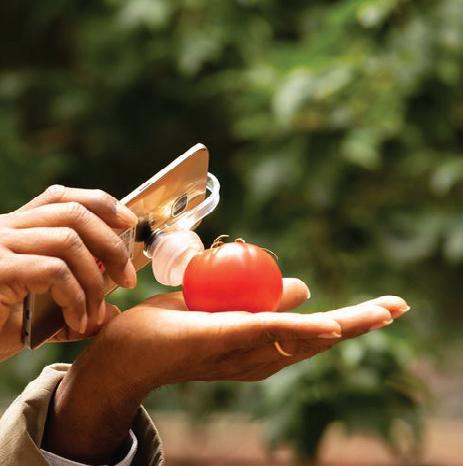
©stock.adobe.com/au/pilipphoto
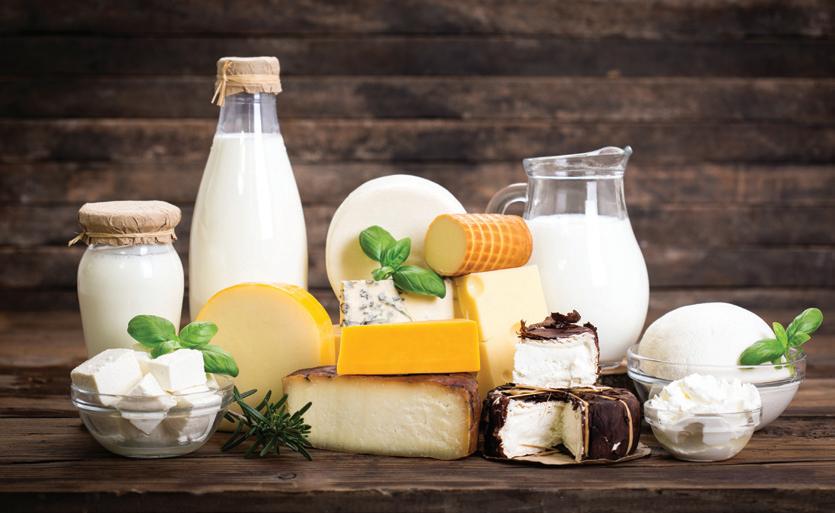
App puts food waste under the microscope
A research team based in Flinders University has developed a smartphone system to detect spoilage and ripeness of fresh food.
Using the GoMicro Spotcheck app and a phone-attachable magnifier, users can assess the level of ripeness or spoilage of fresh foods. The CEO and founder of GoMicro, Dr Sivam Krish, suggested that the system could help to save money for agricultural industries and solve the $1 trillion food waste problem.
“We can assess the ripeness or spoilage of fruits and vegetables with 86–99% accuracy, measured in days,” Krish said.
“It’s a very topical issue for the food industry to address, with an estimated 30% of our food being spoiled. We can see that there are some very strong commercial opportunities for a cheap and portable device to have the power to make accurate food spoilage assessments.”
The software uses an AI system that was trained with 100 images of different vegetables. The company’s patent-pending technology creates lab-quality imaging conditions that can increase the accuracy of detection, reducing the number of images needed for training purposes, resulting in accurate AI detection for this level of magnification.
GoMicro’s aim of re-inventing the microscope and instilling it with artificial intelligence is designed to make the highest quality technology accessible to the public and not just scientists.
The system is initially being directed at agriculture to help farmers and agronomists detect pests and leaf disease, and assess food quality.
©stock.adobe.com/au/adrian_ilie825
Foodtech Packtech delayed until 2023
Foodtech Packtech and the Materials Handling & Logistics Expo have been delayed until 19–21 September 2023.
Originally scheduled to be run from 20–22 September this year, the event is being postponed due to a recent dispute in New Zealand’s High Court concerning the Auckland Showgrounds, the event’s intended location. The managing trust of the showgrounds had planned to lease the location to a film studio; however, a case was brought about by Brent Spillane, Managing Director of XPO (the company that runs Foodtech Packtech and other events), which argued that the showgrounds are required to be used for exhibitions, trade shows, etc.
Although the court ruling is expected to be favourable for the events industry, the event organisers are unable to confirm exact timeframes for upcoming shows. Unfortunately, no alternative venue in Auckland is suitable to house the food manufacturing, packaging and processing technology trade show. As such, Foodtech Packtech and the Materials Handling & Logistics Expo are now scheduled to run from 19–21 September 2023.

©stock.adobe.com/au/Piman Khrutmuang ©stock.adobe.com/au/Viktor

Fonterra to close Brightwater milk powder plant
Fonterra has announced it will be closing the milk powder plant at its Brightwater site. The plant, located near Nelson on the edge of New Zealand’s South Island, will cease operations in April 2023, though milk collection and its associated activities will continue at the facility.
Brightwater currently processes around 0.25% of Fonterra’s total milk supply into whole milk powder. Post-closure, the company’s Darfield site, near Christchurch, will be used for these operations instead.
“We know milk supply is declining over time, flat at best, so we need to make sure we’re getting the most out of every drop of milk and optimising our plants to match both consumer demand and available milk supply,” said Fonterra CEO Fraser Whineray.
“Part of our long-term strategy is to direct more milk into our Foodservice and Consumer business, less into Ingredients, and in some cases to divert product away from the Global Dairy Trade auctions. This, along with forecast capital and maintenance costs, means we’ve made the tough decision to close our milk powder plant at Brightwater.
“We’re continually working to ensure our assets across the country are as efficient as they can be, changing product mixes, and moving more milk into value-add products.”
Thirty employees will be affected by the plant’s shutdown. Fonterra has said it is aiming to support these workers.
“It’s no doubt tough news for some of the Brightwater team and we’ll be working with them in the coming months on their future options, including redeployment opportunities within the Co-op,” said Whineray.
Westland butter factory opens in NZ

Yili Group has opened a new butter plant at Westland Milk Products in Hokitika, West Coast, New Zealand. The inauguration, which took place on 19 July, marks the third anniversary of Westland joining Yili in 2019.
With the plant now open, Westland has doubled its production capacity; it can now make up to 42,000 tonnes of butter per year. This means that it is one of the largest butter-producing facilities in the country.
“Since joining Yili Group, Westland has gained increasing consumer recognition. Westland is dedicated to continuing creating more value for consumers, society and employees in the future,” said Pan Gang, Chairman and President of Yili Group, in a recorded message played at the event. New Zealand Trade and Agriculture Minister, the Hon. Damien O’Connor, was also in attendance to commemorate the investment in new facilities.
Westland CEO Richard Wyeth said: “The original butter plant built in 1973 has now made way for a purpose-built facility that allows us to double our capacity of small-format butter pats with modern, state-of-the-art machinery that still holds true to our traditional churn methods.”
Wyeth also expressed appreciation for the company’s employees, suppliers and partners, with the initial six months of 2022 representing the strongest first-half-year result in seven years.
The butter plant is a component of the Yili Project Goldrush investment plan that is working to upgrade Westland’s production systems and capacities, and to increase awareness of the brand worldwide.
©stock.adobe.com/au/IVASHstudio
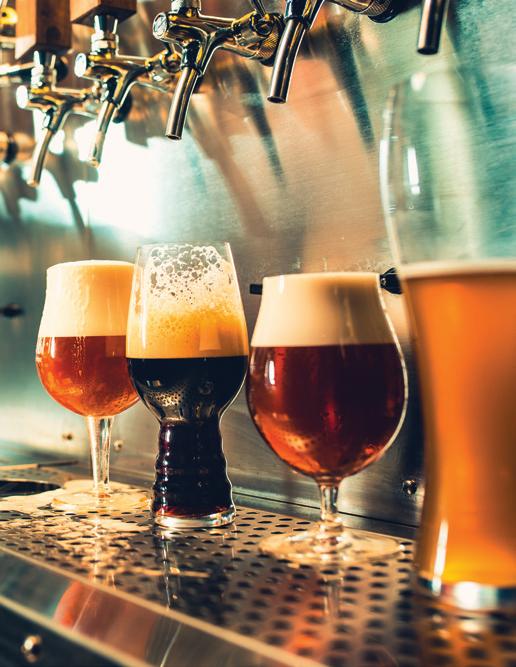
image©iStockphoto.com
Fo d

FOR thought
iStockphoto.com/TanyaSid
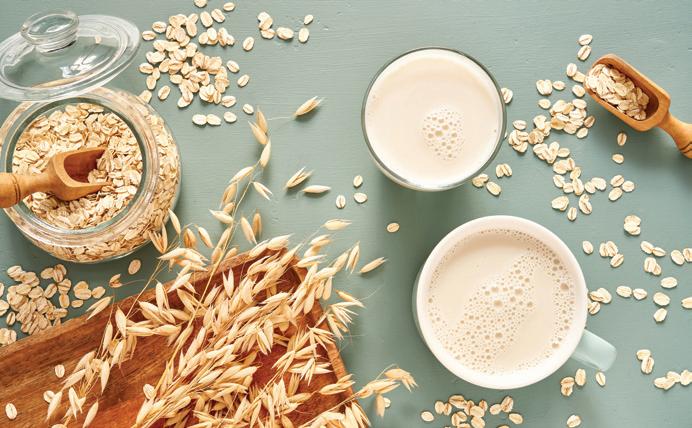
Oat milk producer to build dedicated facility in NZ
Southland-based oat milk producer New Zealand Functional Foods has received a $6 million investment from the NZ Government’s Regional Strategic Partnership Fund to develop a dedicated low-emission plant-based beverage manufacturing facility.
At the announcement of the funding today (11 July 2022), Economic and Regional Development Minister Stuart Nash said Kiwis have almost tripled their consumption of plantbased milk alternatives from 2017–19, spending NZ$144 million in 2019, so there is definite demand for alt-milk products.
“We know that oats grow well in Southland, and being low in water use, land use and emissions, they are an excellent raw ingredient for an environmentally sustainable alternative-milk option. Producing oat milk locally is a lucrative way to diversify our strength as a quality food producer,” Nash said.
“As it stands, we just don’t have the appropriate processing facilities to domestically produce the volumes of oat milk required to make a splash in this burgeoning market. Our investment will help provide the capital needed by New Zealand Functional Foods to build a specialised, large-scale processing plant at Makarewa, with capacity for producing up to 80 million litres of plant-based milk a year.
“The investment is part of our wider government strategy to develop a low-emissions, highly skilled economy that responds to global demands. I am confident that this new facility will add to the reputation of Southland and New Zealand as a real player in the sustainable food and beverage sector.”
No- and low-alcohol drinks slated to increase in popularity
An increased number of Australians are reaching for beverages with no- and low-alcohol (NoLo) content, according to a survey performed by Decibel Research and commissioned by Brick Lane Brewing.
The survey revealed that 45% of consumers say that they regularly or occasionally consume these NoLo beverages and well over half of people say that they will increase the amount of reduced-alcohol drinks they will drink in the future.
The increased amount of NoLo beverages being purchased is said to be related to people becoming more interested in having a healthy lifestyle and the ability to drive after drinking. Despite there being a noted presence of a stigma against these drinks among the respondents, there is an increase in the number of young people drinking them. Interestingly, over a third of people said that the taste of NoLo drinks was a purchasing barrier.
Brick Lane CEO & Co-Founder Paul Bowker said: “It’s clear that NoLo alcohol is no longer a curio or peripheral category but one which is being embraced across a broad cross-section of demographic groups. In particular, younger Australians and those who want a healthier lifestyle are embracing NoLo drinks as a way to have the best of both worlds.
“The NoLo category is already growing rapidly, and as younger people grow older and become even more influential as a consumer group, we anticipate growth will continue to be exponential. We see no reason why NoLo cannot soon capture 10% of the Australian market.”
The results of this survey, which also outline that people want to see more accessibility to NoLo drinks in pubs and retailers as well as a larger variety of options, gel with previously released information that showed them even outperforming alcoholic beverages and that young people are a driving force behind their adoption.
©stock.adobe.com/au/master1305
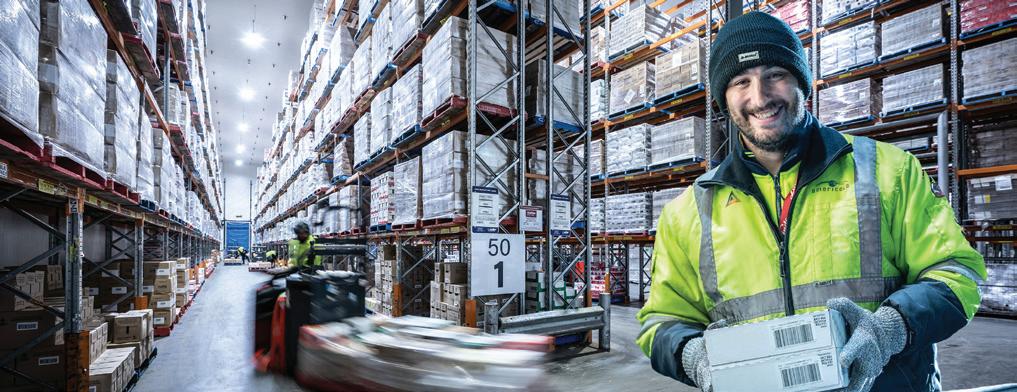
Americold expands Australian presence
Americold, a firm that focuses on the ownership, operation and development of temperature-controlled warehouses, has expanded its Australian presence through the purchase of De Bruyn Cold Storage in Tasmania. The site is located in Wivenhoe, at the Port of Bernie.
The acquisition will increase the company’s APAC pallet positions to close to 300,000 spread across five states and 11 sites in Australia and seven sites in New Zealand.
The company operates an i3PL system that gives users visibility of their inventory at Americold sites across the different sites, states and globally.
“We are pleased to announce our expansion into Tasmania,” said Richard Winnall, Managing Director of APAC/LATAM at Americold.
“The acquisition has already enabled us to win new business from a large, quick-serve restaurant customer. Our growth in Tasmania will be a positive thing for the locals as well, with job opportunities and career advancements through a large global organisation.”
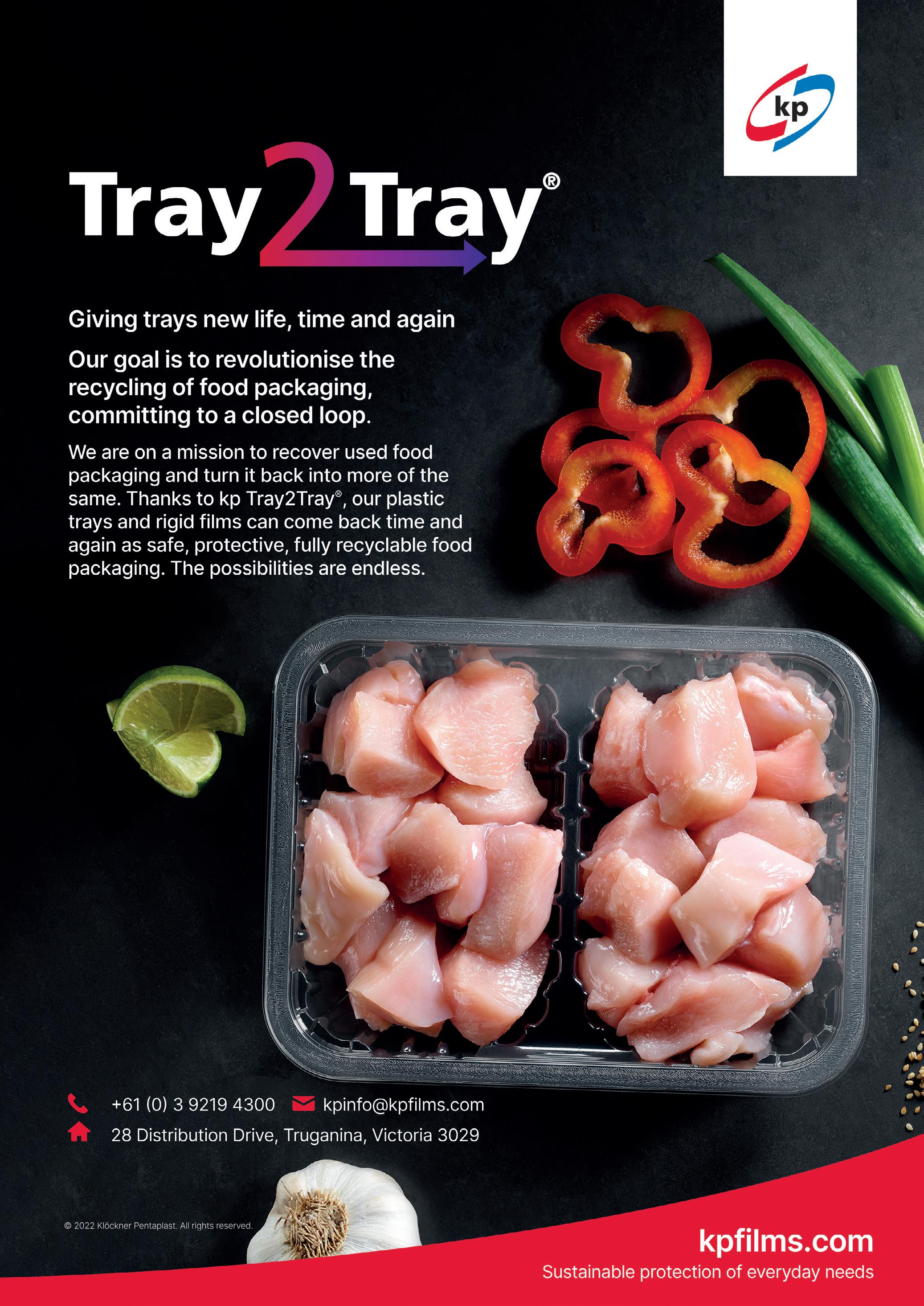
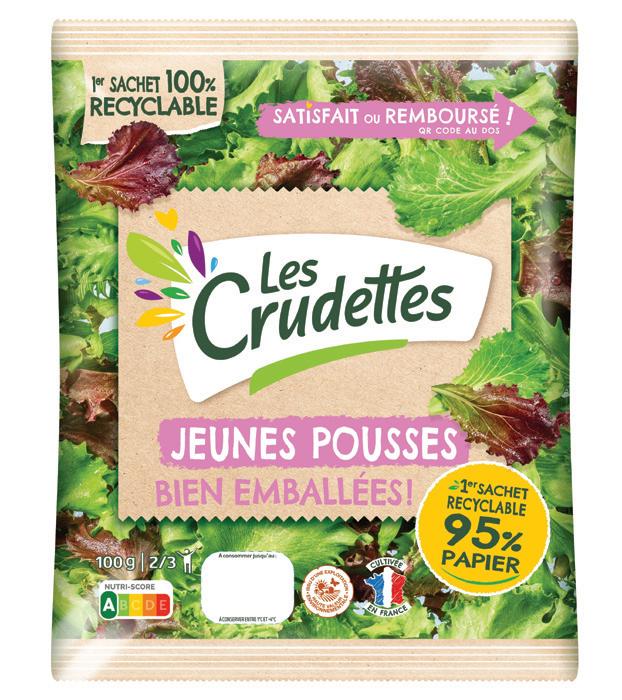
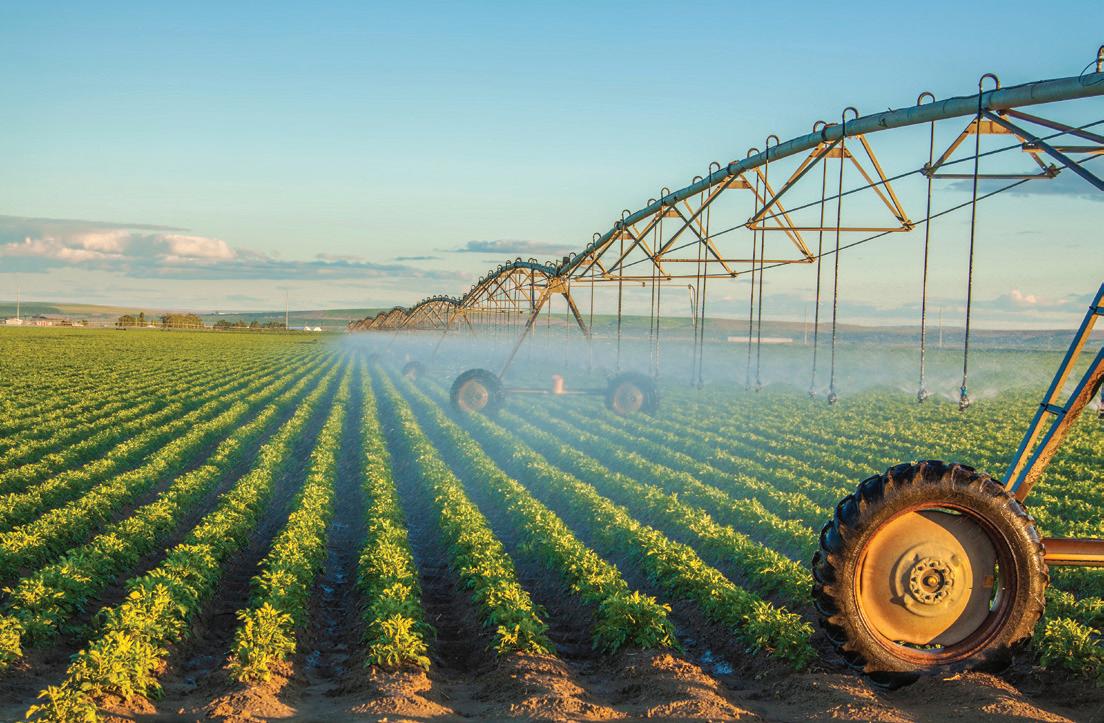
German institute analyses reclaimed wastewater risk
The German Federal Institute for Risk Assessment (BfR) has recommended that fresh produce that is grown close to the ground and is intended to be eaten raw should not be irrigated with reclaimed wastewater due to the likelihood of causing illness.
Crops such as lettuce, carrots, strawberries and herbs grown in these conditions are at risk of carrying harmful viruses or parasites to humans, with the chance of causing both mild and severe sickness. The recommendation from the BfR, a scientific organisation that provides risk analysis of food, chemicals and product safety for Germany’s federal and state government bodies, comes based on emerging evidence that reclaimed wastewater has a chance of carrying viruses and protozoa if not properly treated.
“Reclaimed wastewater in agriculture poses a new challenge to food safety,” said BfR President Professor Dr Dr Andreas Hensel. “In order to reduce pathogens as much as possible, we need very good treatment and detection methods.”
The data do not currently support a conclusive risk assessment but the organisation is confident enough to make a strong recommendation against the practice of using the water to farm these particular plants, at least until treatment processes are available for the water. Further research is required.
©stock.adobe.com/au/alexmisu
Pink and white strawberries to hit store shelves
Two varieties of strawberries, Pink and White, will soon be available on store shelves. Announced at the BerryQuest International 2022 conference, the berries are being fasttracked to market after a tender was put out by Hort Innovation for their commercialisation.
The fruits are claimed to be aromatic with a distinct appearance, and they’ve been bred specifically for Australia’s growing conditions. The strawberries are the first novel variety developed from a partnership between Hort and the Department of Agriculture and Fisheries, Queensland (DAF QLD).
“Pink and White strawberries are like nothing else on Aussie retail shelves,” said Hort Innovation Chief Executive Brett Fifield. “They’re exceptional, and so they should be. They are the culmination of years of research, field trials, consumer preference testing and industry engagement.”
A partner is now being sought by Hort and DAF QLD in order to commercialise the strawberries and market them to consumers.
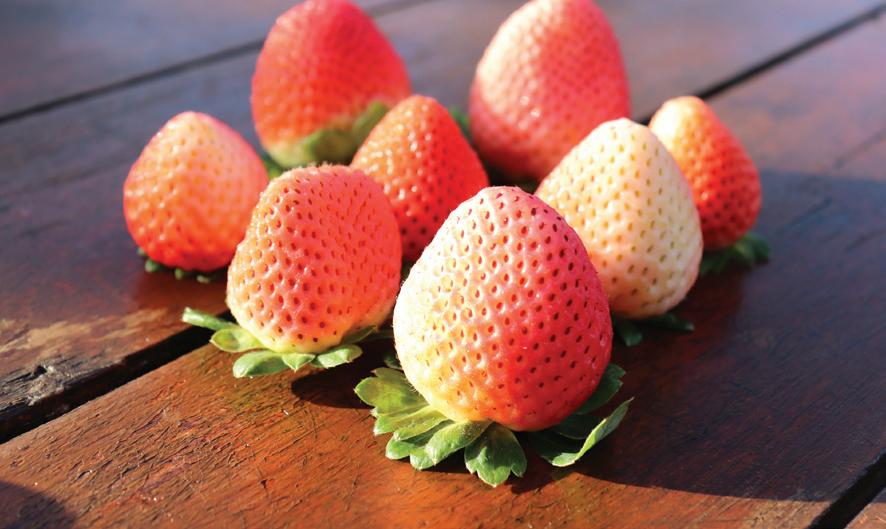
Sustainable salad bag wins Dow packaging award
Mondi has taken home a gold award from Dow’s Packaging Innovation Awards for developing a sustainable packaging option for salads.
Mondi worked with Les Crudettes, producer of readyto-eat salads, to meet its sustainability goals of reducing the amount of plastic the brand uses.
The salad packaging is able to keep its contents fresh but uses paper instead of plastic films, which results in a recyclable product. The salad bags are functionally similar to those previously used by Les Crudettes, as they use coatings that provide protection against the grease and water vapour typically found in salads.
“This award is a recognition of our ground-breaking innovation; our bags could revolutionise the ready-to-eat salad market. Working together with Mondi has resulted in hugely reducing the amount of plastic needed,” said Géraldine Collet, Marketing and Innovation Director, Les Crudettes.
The Packaging Innovation Awards by Dow are given out in recognition of packaging projects that innovate on the fronts of sustainability, technology and enhanced user experiences. Almost 100 entries were assessed by a team of international judges in order to select the winners.
